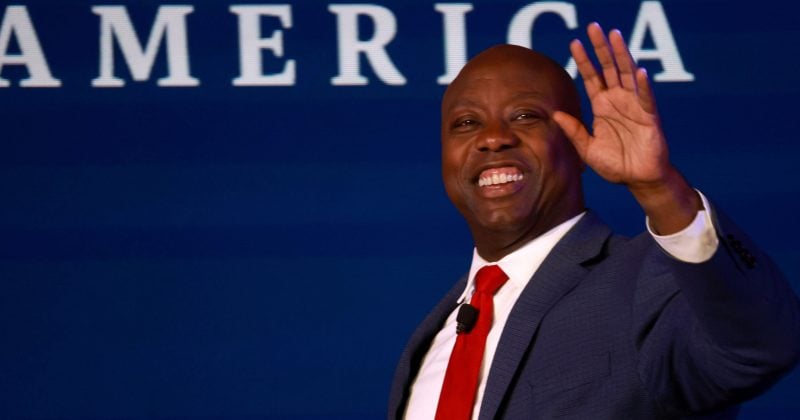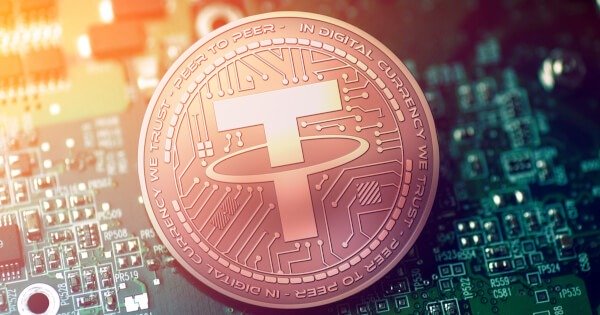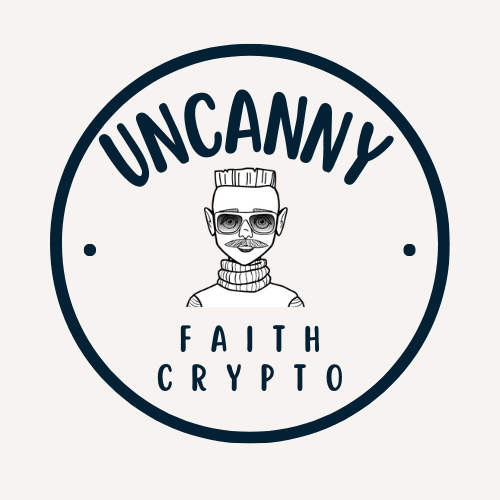
by uncannyfaith | Jan 15, 2025 | Cryptocurrency news and updates
Key Highlights
- U.S. Senate Banking Committee Chair Tim Scott has announced a focus on crypto regulation and financial innovation in his new legislative agenda.
- The aim is to strike a balance between regulatory oversight and promoting innovation, ensuring a structured future for digital assets like cryptocurrency and stablecoins.
The Chair of the Senate Banking Committee, Tim Scott, is taking strides to modernize the regulatory landscape for cryptocurrencies. In his latest announcement, Scott unveiled plans to develop a dedicated framework for the trading and management of digital assets. This includes a focus on stablecoin oversight while promoting consumer choice, education, and protection.
Scott criticized the lack of clear guidance under the previous administration of the Securities and Exchange Commission (SEC), noting the unintended consequence of driving innovation overseas. "Under Chair Gensler, the SEC failed to provide clarity to the cryptocurrency industry, pushing projects outside of U.S. borders," Scott emphasized, as referenced in his January 15 announcement.
Leadership Shift and the Road Ahead
The recent changes in Senate leadership played a significant role in driving this agenda. Former Ohio Senator Sherrod Brown’s tenure as Committee Chair ended with his loss to Bernie Moreno, paving the way for Tim Scott to assume the role. This political transition marked a turning point for the Committee, which now prioritizes aligning regulatory clarity with innovation.
Funding also added an interesting layer to this development—the crypto-aligned political action group, Fairshake, devoted over $40 million to campaign efforts during the Senate race. This expenditure made the congressional contest one of the priciest in modern history, ultimately securing Moreno’s victory and Scott’s chairmanship.
Comprehensive Legislative Goals
While digital asset oversight is a priority for Scott, his broader agenda also focuses on:
- Enhancing financial inclusion by addressing inequalities within the financial system.
- Reducing excessive regulatory burdens to unlock economic potential.
- Improving housing affordability for working families.
- Strengthening economic security as part of a cohesive national strategy.
- Driving innovation while addressing cybersecurity risks and combating illicit financial practices.
By setting a legislative tone focused on fostering innovation alongside robust consumer protection, the new Senate leadership aims to establish the U.S. as a competitive hub for both blockchain and digital asset ecosystems. Balancing stringent oversight with opportunities for growth will undoubtedly be the focal challenge as this agenda unfolds.

by uncannyfaith | Jan 14, 2025 | Cryptocurrency news and updates
Bitcoin Faces Macro Risks: A Strategic Buying Opportunity Below $90K?
Bitcoin (BTC) is feeling the effects of mounting macroeconomic challenges as it hovers near the critical $90,000 support level. According to Geoffrey Kendrick, head of digital assets research at a leading financial institution, any price retracement below this threshold could serve as a "medium-term" buying opportunity. Despite current market volatility, Kendrick remains optimistic about Bitcoin’s long-term potential.
In a recent research note dated Jan. 14, Kendrick highlighted the strategic value of accumulating Bitcoin during downturns. While there are concerns about a possible dip into the low $80,000 range if Bitcoin fails to hold the $90,000 level, he emphasized that this could present an excellent entry point for investors.
Macro Risks Weighing on Bitcoin
At present, Bitcoin is trading near $96,000, navigating a volatile landscape shaped by several macroeconomic factors. Investors are focused on upcoming U.S. Consumer Price Index (CPI) data and the potential for significant policy announcements tied to President Donald Trump’s Jan. 20 inauguration.
Market analysts remain divided on how the inauguration will impact Bitcoin in the short term. Some speculate it could trigger a "sell-the-news" event, potentially leading to a deeper correction and testing of the $80,000 support level.
Moreover, unwinding positions in Bitcoin-focused exchange-traded funds (ETFs) is also contributing to market pressure. Kendrick notes that the average purchase price of Bitcoin for major ETFs and corporate holdings, such as MicroStrategy, has hovered around $94,000 since the U.S. election. A decisive break below this threshold could spark selling pressure and amplify market volatility.
Convexity Risks and Market Uncertainty
Kendrick warns of "convexity risks" that could create cascading pressure in Bitcoin markets if the $90,000 level fails to hold. This scenario could lead to further downward momentum as key technical and psychological levels are breached.
Nevertheless, Bitcoin has managed to stay well above $90,000 thus far, providing some reassurance to investors. As of now, Bitcoin is trading at $96,593, signaling resilience despite the broader concerns.
Looking Ahead: $200K BTC by 2025?
While short-term risks persist, the long-term outlook for Bitcoin remains bullish. The institution maintains its ambitious $200,000 price target for Bitcoin by the end of 2025. This projection is based on expectations of increasing institutional adoption and favorable economic policies under the new U.S. administration.
In the near term, the research head advises investors to exercise caution while looking for opportunities to strategically accumulate during price dips.
Key Takeaways for Investors
Although Bitcoin faces immediate macro challenges, its long-term growth potential remains intact. A price dip below $90,000 could provide a strong buying opportunity for investors with a medium- to long-term outlook. Staying vigilant for key support levels and macroeconomic developments will be crucial during this period of uncertainty.
Bitcoin’s ability to weather this turbulence and sustain its position will play a pivotal role in shaping its trajectory toward the $200,000 landmark over the next few years.

by uncannyfaith | Jan 13, 2025 | Cryptocurrency news and updates
Tether Secures Digital Asset License in El Salvador to Advance Bitcoin Innovation
Tether, one of the leading stablecoin issuers, has obtained a Digital Asset Service Provider (DASP) license in El Salvador. This milestone reflects Tether’s dedication to fostering global Bitcoin adoption while expanding its reach in emerging markets. The move highlights Tether’s commitment to financial innovation and its efforts to revolutionize digital finance.
Why El Salvador is a Hub for Digital Transformation
El Salvador has emerged as a global leader in digital assets and FinTech innovation. With forward-thinking policies and a blockchain-supportive regulatory environment, the country has become an attractive destination for companies in the digital finance sector. Its proactive approach is cultivating an ecosystem that attracts investment and drives technological progress, solidifying El Salvador’s position as a major player in the global financial and blockchain technology landscape.
Tether’s Strategic Expansion
Tether’s decision to establish operations in El Salvador is a strategic move to align with the country’s Bitcoin-first economy. By relocating to this innovative hub, Tether aims to boost financial inclusion and empower individuals and businesses with accessible digital financial solutions.
By obtaining a license in a country championing Bitcoin adoption, Tether gains significant operational agility. This enables the company to focus on delivering cutting-edge services and strengthening its global position as a stablecoin and blockchain leader.
Key Objectives of Tether in El Salvador
-
Promoting Global Bitcoin Adoption
Tether plans to drive financial inclusion by supporting Bitcoin and stablecoin adoption in underserved and emerging markets.
-
Creating Opportunities for Innovation
El Salvador’s favorable regulatory environment provides Tether with the freedom to explore groundbreaking financial solutions and develop new technologies.
- Strengthening Market Footing
By securing the DASP license, Tether establishes itself in a jurisdiction uniquely suited to support its long-term vision of advancing digital currency usage worldwide.
What Tether’s Leadership Says
Paolo Ardoino, CEO of Tether, expressed his optimism about the move, stating, "This decision is a natural step for Tether as we build a new home, foster collaboration, and strengthen our commitment to emerging markets. El Salvador is a beacon of innovation in the digital asset space."
As Tether deepens its connection with El Salvador, it plans to collaborate with the government, businesses, and local communities to shape the future of financial technology and blockchain adoption.
Looking Ahead
This strategic expansion emphasizes Tether’s role in driving the growth of the digital economy while empowering populations in developing regions. With El Salvador at the forefront of blockchain adoption, Tether’s presence is set to contribute significantly to the evolution of global financial infrastructure.
El Salvador’s transformative approach to digital assets makes it the ideal location for companies like Tether to innovate and lead the global shift toward decentralized finance.

by uncannyfaith | Jan 12, 2025 | Cryptocurrency news and updates
Bitcoin Bears Eye Key Support Level With Resistance at $100K Holding Firm
Bitcoin is facing a challenging start to 2025 as it struggles to maintain momentum above the $100,000 resistance level. After initially breaking past $100,000 in early December, the cryptocurrency has experienced repeated rejections. The latest instance saw Bitcoin touch $102,000 on Monday, only to sharply decline to $92,000 by Thursday. This continued price action highlights increasing concerns over a bearish outlook for the leading cryptocurrency.
The $90K Support Level: Pivotal for Bitcoin
Bitcoin bulls are closely monitoring the critical $90,000 support level, which has held firm during recent corrections. However, repeated retests of this level are raising concerns about its long-term strength. Technical analysts emphasize that Bitcoin has tested the $90,000 zone five times in recent months, which could weaken its durability as a support level.
Should Bitcoin break below $90,000, the cryptocurrency risks cascading further to $87,000. A drop below this threshold could open the door to a rapid decline, potentially falling through a $12,000 gap to the $75,000 range.
Resistance Levels to Watch
For bullish momentum to return, Bitcoin must decisively break above a series of resistance levels. Key targets include $103,000, $106,400, and $108,500, with the latter being the most significant marker. A breakout and daily closes above $108,500 would likely propel Bitcoin toward new all-time highs.
Currently, technical indicators suggest a bearish sentiment, with Bitcoin failing to maintain support above the 21 EMA on the daily timeframe. The Fear and Greed Index also sits in a neutral zone, reflecting uncertainty in the market.
External Factors in Focus
The cryptocurrency market is closely watching external developments that could influence Bitcoin’s price trajectory. The upcoming inauguration of Donald Trump on January 20th is a key event, as many anticipate crypto-positive policies under the new administration. This may trigger a short-term rally or exacerbate the ongoing decline, depending on how the market reacts to any policy announcements.
Current Market Standing
At the time of writing, Bitcoin is trading at $94,400. To regain bullish momentum, bulls must defend the $90,000 support level and push beyond the crucial resistance zones outlined above.
Key Takeaway for Investors: Keep a close eye on the $90,000 support level and the $103,000 to $108,500 resistance zones. A strong bounce above resistance levels could signal bullish recovery, while a sustained break below $90,000 might confirm a bearish pattern.
Image credit: Pexels | Chart Source: Trading Metrics
Disclaimer: This content is for informational purposes only and should not be considered financial advice. Always do your own research before making investment decisions.

by uncannyfaith | Jan 11, 2025 | Cryptocurrency news and updates
Meme Cash Making Waves: $PEPU Positive factors Momentum Whereas $WEPE Shatters Presale Data
Within the midst of a risky crypto market, the place most tokens proceed to battle, two meme cash—$PEPU and $WEPE—are redefining the sport, turning heads with their spectacular achievements.
$PEPU Surges by 21%, Thrilling Traders
In a stunning flip of occasions, $PEPU has soared by 21%, drawing vital consideration from merchants and buyers. As a part of the bigger Pepe-themed ecosystem, $PEPU’s efficiency is underpinned by a strong and devoted neighborhood of over 74,000 holders.
This surge has additionally spotlighted the joy surrounding the upcoming launch of the Pump Pad, scheduled for January 2025. The Pump Pad is about to revolutionize the meme coin panorama by changing into the primary meme coin-focused launchpad on the Ethereum community, designed with its very personal Layer 2 blockchain. Although the platform stays below improvement, it’s already stirring anticipation, as its revolutionary options promise environment friendly and cost-effective token launches.
Traders see extra than simply hype surrounding $PEPU’s latest efficiency. It displays rising confidence within the long-term imaginative and prescient of the ecosystem. With momentum firmly on its facet, $PEPU is positioning itself as a key participant within the evolving meme coin market.
$WEPE Presale Smashes Data, Raises $45 Million
In the meantime, $WEPE, dubbed the Wall Avenue Pepe token, has surpassed expectations by elevating an astonishing $45 million in its presale. This milestone marks $WEPE as one of many fastest-growing crypto tasks of 2025, cementing its attraction amongst buyers and crypto fanatics alike.
What makes $WEPE stand out amidst numerous meme cash is its utility past simply viral enthusiasm. The token is preventing towards whale manipulation—a long-standing subject within the crypto area—by providing holders unique instruments and insights into market tendencies. These options present sensible advantages to merchants, comparable to whale-tracking instruments and superior buying and selling analytics.
By combining humor with performance, $WEPE has elevated the usual for meme cash. This distinctive method is resonating with each crypto newcomers and seasoned buyers searching for smarter buying and selling methods.
Innovation and Utility: Redefining the Meme Coin Market
The rise of $PEPU and $WEPE indicators an evolution within the meme coin area. Whereas conventional meme cash usually depend on neighborhood hype and viral tendencies, these tokens showcase the rising significance of utility and innovation.
$PEPU embraces a community-driven method, leveraging its sturdy holder base and the joy surrounding new platform launches. Alternatively, $WEPE differentiates itself with tangible utility, providing instruments that clear up real-world issues throughout the crypto market.
Meme cash as soon as existed purely as speculative belongings, however now they’re ushering in a brand new period—one combining leisure with inherent worth. Whether or not by groundbreaking platforms just like the Pump Pad or revolutionary instruments like whale-tracking insights, these tasks are main the cost towards extra sustainable progress.
The Way forward for Meme Cash: A Thriving Ecosystem?
The spectacular performances of $PEPU and $WEPE recommend that meme cash are now not area of interest investments—they’re evolving right into a mainstream sector of the crypto market. These successes spotlight a shift in investor demand towards tasks that stability enjoyable with performance.
With $PEPU’s neighborhood backing and $WEPE’s innovation-driven technique, each tokens are redefining what meme cash can obtain. If their momentum continues, the perfect days for meme cash should lie forward, opening the door to a vivid and sustainable future.
Keep tuned to see how $PEPU and $WEPE proceed to form the following chapter on this planet of cryptocurrency.
This rewritten content material optimizes readability, retains the main points intact, and improves search engine marketing by seamlessly integrating key phrases like “crypto market,” “meme cash,” and “buyers.”





